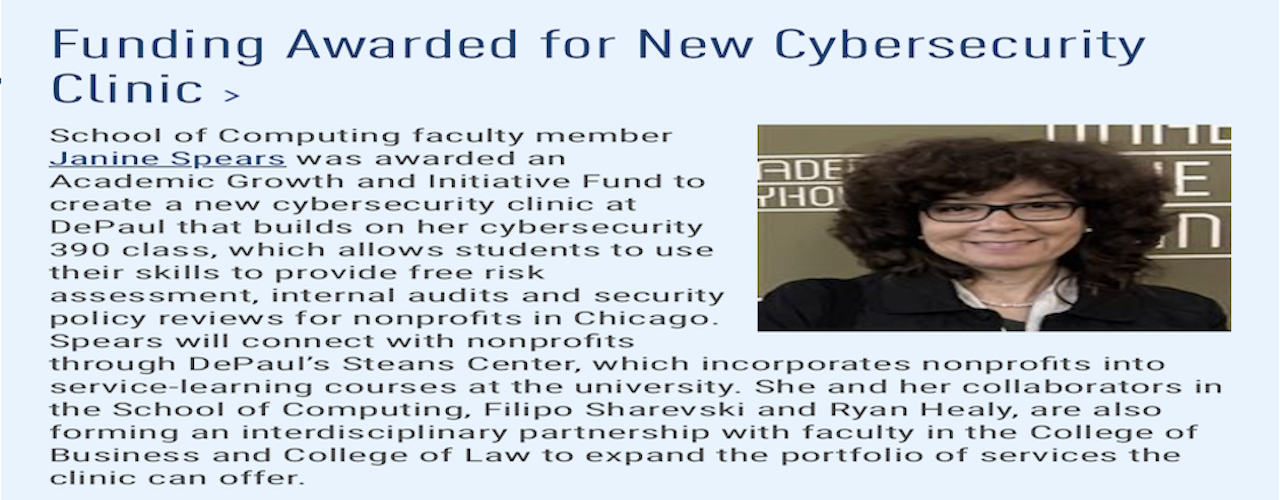
Research Projects

Information Security Risk Assessment
I test behavioral theory on information security and privacy. My work also applies a variety of methods to identify, analyze, and communicate fundamental security weaknesses found in an organization’s security policies, data workflows, and technologies in order to make improvement recommendations.
More...
The 10-Minute Play as a Pedagogical Method
Theatrical playwriting and performance are used in my IS and cybersecurity courses to aid students in collaborative knowledge construction and insight into human-computer topics. My research explores how plays enhance student engagement and learning.
More...
The Cybersecurity Workforce
What distinguishes cybersecurity work from other IT work? One research project examines the job functions and contextual nature of various cybersecurity work roles. I also study job stressors in incident response work and their effects on the workforce. The study objective is to improve worker and skill retention in this role.
More...Selected Publications |
|---|
| Spears, J. (2024) "The 10-Minute Play as a Pedagogical Method,” Americas Conference on Information Systems (AMCIS) TREOs 2024 |
| Spears, J. (2023) “Job Stress in the Cybersecurity Incidence Response Work Role,” Workshop on Security (and Privacy) Information Workers (WSIW) at USENIX SOUPS |
| Spears, J., Padyab, A. (2021) "Privacy Risk in Contact Tracing Systems," Behaviour & Information Technology, DOI: 10.1080/0144929X.2021.1901990 |
| Spears, J., (2018) "Gaining Real-World Experience in Information Security: A Roadmap for a Service Learning Course," Journal of Information Systems Education, vol. 29(4), pp. 183-202, Best Paper Finalist Award |
| Mead, N., Shull, F., Spears, J., Hiebl, S., Weber, S., Cleland-Huang, J. (2017) “Crowd Sourcing the Creation of Persona-Non-Gratae for Requirements-Phase Threat Modeling," 25th IEEE International Conference on Requirements Engineering |
| Spears, J., San Nicolas-Rocca, T., (2015) “Knowledge Transfer in Information Security Capacity Building for Community-Based Organizations,” International Journal of Knowledge Management |
| Spears, J., Barki, H., Barton, R., (2013) “Theorizing the Concept and Role of Assurance in Information Systems Security,” Information & Management |
| Spears, J., Barki, H., (2010) “User Participation in IS Security,” MIS Quarterly |
